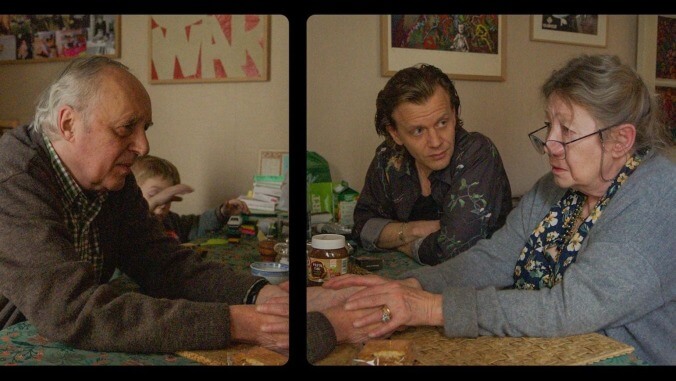Gaspar Noé's splendid Vortex explores a more conventional, but no less harrowing horror—old age
The film takes an unflinching look at a couple, played by Francoise Lebrun and legendary Italian director Dario Argento, as they near the end of life

Gaspar Noé made his name as a filmmaker with assaultive, brutal “cinema of the body,” unflinchingly depicting humans at their worst. Dario Argento is considered a master of horror, primarily in the gruesome Italian giallo style. When the two come together to collaborate, it’s reasonable to assume they’re creating something truly horrific. But while Vortex achieves that effect, it’s not in the way fans of either director would expect.
Noé’s most notorious film, the rape-and-revenge story Irreversible, concludes its backward-running narrative with a statement that “time destroys everything.” In Noé’s hands, “time” is usually assisted by awful human beings, and often drugs, but with Vortex, he seems to have realized that time doesn’t need any help. Left to its own devices, its impact on the body and mind can be more brutal than any crack-smoking rapist or mad butcher. Following in the footsteps of fellow provocateur Michael Haneke and his acclaimed and uncharacteristically conventional Amour, Vortex looks unsparingly at characters at the end of life, and finds their experiences as scary as any traditional horror tale.
As for Argento, he stars in his first—and, he says, only—lead role. Keeping close to home, he plays an aging film critic who’s hard at work on a book about the notion of movies as dreams. Françoise Lebrun (of Jean Eustache’s The Mother And The Whore, a Noé favorite) plays his wife, a psychiatrist whose ability to write her own prescriptions becomes increasingly dangerous when she starts losing her senses. Both are billed in credits, respectively, as The Father and The Mother. Characters in this story may have names, but are credited only by their function. We may be seeing individuals, this labeling suggests, but the overall arc of life and death happens so often that we can assign generic roles to the participants. As Noé’s official synopsis simply proclaims, in all-caps, “LIFE IS A SHORT PARTY THAT WILL SOON BE FORGOTTEN.” He’s as grandiose as ever, which is to be expected from a person who makes the kinds of films he does.
It’s no insult to Noé to point out that he’s fond of technical gimmicks. From the non-stop inner monologue of I Stand Alone to Enter The Void’s subjective dead-man POV, he likes to remind audiences they are watching a movie, using techniques no other medium allows. In the case of Vortex, as we first see the old couple in slumber, a black line slowly draws itself down the middle of the screen, bisecting our perspective the way Alzheimer’s cuts a sufferer off from everyone around them. From there, the movie mostly remains in split-screen, like Conversations With Other Women; one camera on Mother, the other on Father—except in occasional moments where the camera follows their Son (French comedian Alex Lutz), who goes by the name of Stephane. It allows us to see what either parent is doing apart from one another; then, in scenes when they’re together, creates an imposed barrier between them just as her dementia does.

 Keep scrolling for more great stories from The A.V. Club.
Keep scrolling for more great stories from The A.V. Club.